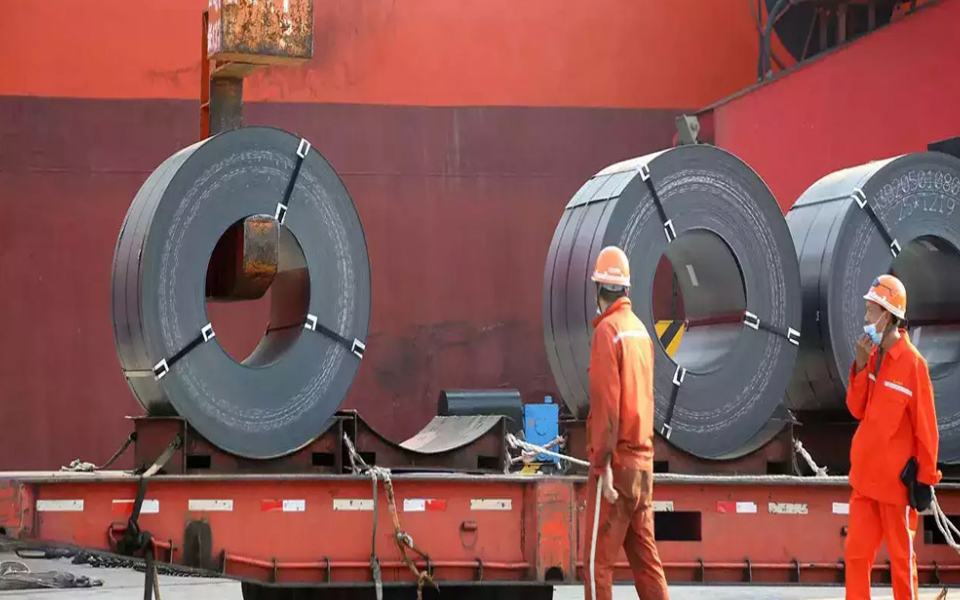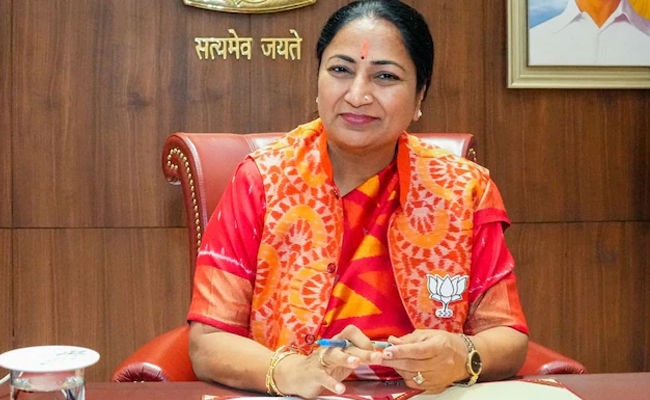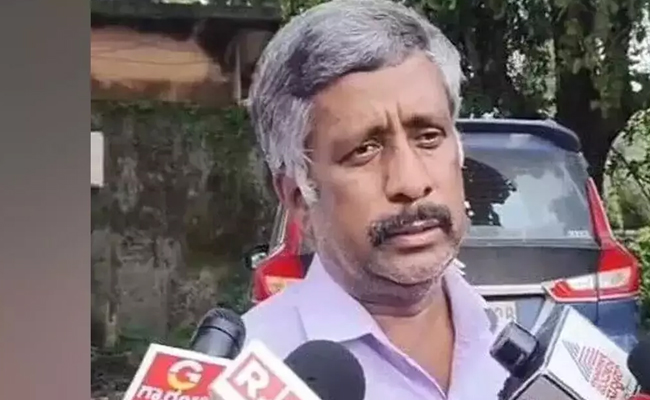New Delhi, Mar 23 (PTI): India has imposed anti-dumping duty on five Chinese goods, including vacuum flasks and aluminium foil, during the month so far to guard domestic players from cheap imports from the neighbouring country.
These duties were imposed as these products -- Soft Ferrite Cores, certain thickness of vacuum insulated flask, aluminium foil, Trichloro Isocyanuric Acid, and Poly Vinyl Chloride Paste Resin -- were exported to India from China at below normal prices.
In separate notifications, the Central Board of Indirect Taxes and Customs, Department of Revenue, said that the duty imposed "shall be levied for a period of five years" on imports of Soft Ferrite Cores, vacuum insulated flask, and Trichloro Isocyanuric Acid.
The anti-dumping duty of up to USD 873 per tonne was imposed provisionally on aluminium foil for six months.
The government has imposed the duty in the range of USD 276 per tonne to USD 986 per tonne on imports of the acid (a water treatment chemical) from China and Japan.
On imports of Soft Ferrite Cores (used in electric vehicles, chargers, and telecom devices), up to 35 per cent duty was imposed on CIF (cost, insurance freight) value.
Similarly on vacuum insulated flask, USD 1,732 per tonne anti-dumping duty was levied. The levy, which ranges from USD USD 89 per tonne to USD 707 per tonne, on Poly Vinyl Chloride Paste Resin was slapped on the imports from China, Korea RP, Malaysia, Norway, Taiwan and Thailand for five years.
These duties are imposed after recommendations for the same were made by the commerce ministry's investigation arm DGTR (directorate general of trade remedies).
Anti-dumping probes are conducted by countries to determine whether domestic industries have been hurt because of a surge in cheap imports.
As a countermeasure, they impose these duties under the multilateral regime of Geneva-based World Trade Organization (WTO). The duty is aimed at ensuring fair trading practices and creating a level-playing field for domestic producers vis-a-vis foreign producers and exporters.
India has earlier already imposed anti-dumping duty on several products to tackle cheap imports from various countries, including China.
India and China both are members of the WTO. China is the second largest trading partner of India. The country has time and again flagged serious concerns over the widening trade deficit with the neighbouring country, which stood at USD 85 billion in 2023-24.
Let the Truth be known. If you read VB and like VB, please be a VB Supporter and Help us deliver the Truth to one and all.
Kolkata (PTI): Alleging that her West Bengal counterpart Mamata Banerjee had approached the Supreme Court to stall the SIR exercise to prevent the identification of infiltrators, Delhi Chief Minister Rekha Gupta on Sunday claimed that the people of the state have made up their minds to dislodge the Trinamool Congress from power.
The TMC countered strongly, urging Gupta to "look into her own backyard" and accused her of making absurd allegations against the TMC government without checking facts.
Addressing participants at the 'Nari Sankalp Yatra' organised by the BJP's women's wing at Science City auditorium here, Gupta alleged that the "hands-off" and appeasement policies of the TMC government had allowed thousands of infiltrators to enter the state in recent years.
She claimed that this had put a strain on basic rights such as access to water, electricity, ration, education, livelihood and the right to vote for genuine citizens.
"She wants to perpetuate this and hence is trying to stall the SIR exercise, which aims at identifying and deporting infiltrators. Imagine a chief minister going to the apex court to argue against an exercise meant to ensure free and fair polls," Gupta said.
The BJP leader alleged that appeasement politics had reached an "alarming level" under the TMC regime.
Raising concerns over women's safety, she claimed that women in the state were not secure despite having a woman chief minister.
Referring to the rape-murder of a woman doctor at RG Kar Hospital, Gupta alleged that the state government had failed to respond adequately to such crimes.
She also referred to the alleged rape of a woman medic in Durgapur and another law student on a Kolkata college campus, claiming that criminals had been emboldened to commit brutalities against women.
She alleged that in crimes against women, overall crime incidents and child marriages, West Bengal remained among the top -- "a slur on a state which once led intellectual and social movements and set examples for the rest of the country," she said.
Criticising the state government's welfare initiatives, she said schemes such as Kanyashree were built on "false claims" and asserted that women needed security rather than assurances.
Accusing the state government of blocking central schemes, Gupta alleged that funds worth "lakhs of crores of rupees" had not reached the poor due to non-implementation of programmes such as Ayushman Bharat, PM Awas Yojana and Jal Jeevan Mission by the state.
"You are only interested in renaming projects and taking credit," she said.
Gupta also alleged that the education sector in the state had been adversely affected, saying several state-run schools had closed due to a shortage of teachers and that the government was opposed to the National Education Policy.
Drawing a comparison with BJP-ruled Delhi, Gupta said, "People have already voted out 'Bhaia' (a reference to former Delhi chief minister Arvind Kejriwal). Now it is your turn to bid farewell to 'Didi'." Calling upon women to resist what she termed "strong-arm tactics", she urged them to assert their strength, invoking the imagery of Goddess Durga.
"Bengal has the right to live with dignity, and women have the right to live with dignity," she added.
Reacting to Gupta's allegations, West Bengal Women and Child Welfare minister Shashi Panja accused her of making "absurd allegations" against the Trinamool Congress government ahead of elections.
Panja alleged that during Gupta's tenure in Delhi, several incidents had raised serious concerns, including reports of missing young women and a blast near the Red Fort.
She also criticised the air pollution situation in the national capital, claiming that people were struggling to breathe.
The TMC leader said that despite being in power for a year, Gupta was making "tall claims" instead of addressing key issues in Delhi.
Panja further alleged that the Delhi CM visited West Bengal during elections to "peddle false allegations" against the state government.
Rebutting Gupta, the TMC said in a post on X said, "Madam why did you go off-script again? For your edification, here are the cold, hard facts: In total cases of crimes (IPC + SLL), Bengal ranks a respectable 15th, far safer than BJP-ruled Uttar Pradesh, Maharashtra, and Gujarat, which languish near the bottom."
"In overall crime rate, Bengal sits comfortably at 28th. Who's second? Your own Delhi. Double Engine Gujarat and Haryana grab 4th and 5th as top-tier crime havens," the TMC said.
"In child marriage, Assam again takes the shameful pole position. And yet you dare lecture Bengal? Stop embarrassing yourself, stop the hypocrisy, and maybe fix the rotting mess in your own backyard before pointing fingers at a state that's outperforming your disasters on every key metric," the TMC countered.





